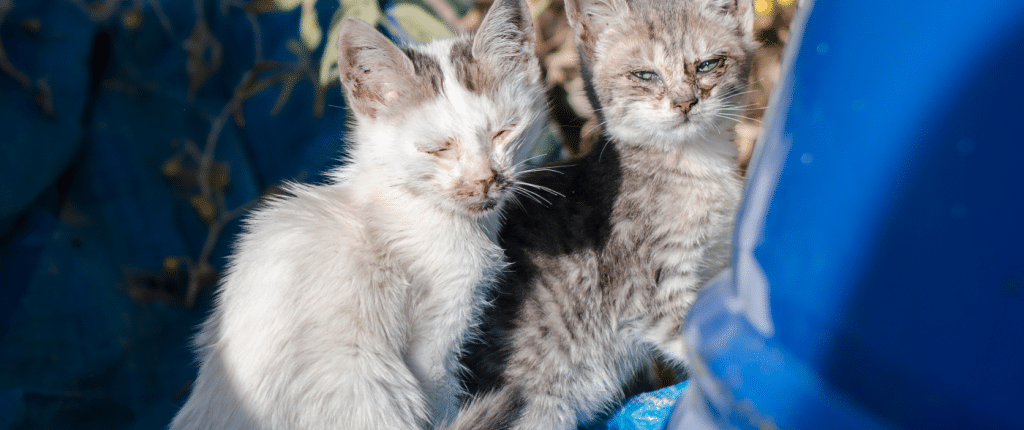On the picturesque Greek islands of Ithaca and Kefalonia – the setting made famous by the book and movie Captain Corelli’s Mandolin – cats live in constant fear of poisoning and random cruelty according to international animal welfare organisation Network for Animals (NFA).
Paul Seigel, an NFA campaigner, says that many Greeks love cats, but a lot of island people see them as a nuisance to be destroyed, saying they breed uncontrollably and annoy tourists by begging at restaurant tables. “Large-scale poisonings and clubbing take place far from the eyes of tourists,” said Seigel, “what happens is illegal, but only very rarely prosecuted. It’s important to know the reality; that the cute cat sniffing around your restaurant table is very likely to be poisoned or beaten to death.”
Seigel said that NFA, through feeding programs, sterilization and education, is helping to change the situation. “Generally, Greeks are cat-lovers, and individuals can be very kind to street cats. The problem is often in areas with an older generation who still treat animals as if they have no feelings. We try to convince these people that street cat populations can be made stable without recourse to butchery.”
Greeks own around 600,000 cats – some estimates put the number of strays as exceeding those formally owned as pets. It’s difficult to know for certain, because there has never been any attempt to count.
What’s clear, however, is that cats are not generally appreciated or valued; instead, they are often seen as vermin. They are routinely abandoned to their fates on the streets. Cruelly, there is a commonly-held attitude that stray animals are fair game for poisoning or other methods of killing.
Illogically, neutering is considered unnatural. Even in major towns, the authorities make no provision for shelters and are often hostile towards individuals or organizations wishing to establish sanctuaries or give succor to street cats and kittens.
“These animals have become a cultural icon for the country, pictured on websites and postcards, evoking sun-soaked, carefree days. If only this were true for these creatures,” muses Seigel.
When the summer curtain closes and the tourists head home, abuse and the effects of neglect spiral, and malnutrition or starvation, disease and lack of shelter take their toll. Animal rights advocates believe that hundreds of street cats and kittens die every Greek winter.

